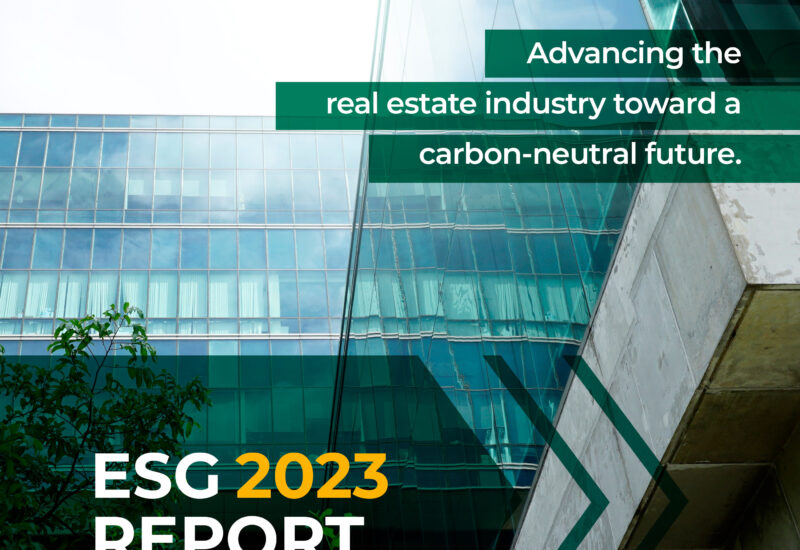Increasing Importance of ESG Reporting
The adoption of Environmental, Social, and Governance (ESG) reporting is emerging as a key driver of success for any organization operating in the global market today. A strong ESG strategy offers a multitude of benefits to companies committed to sustainability far beyond publishing an annual report. From regulatory compliance to financial incentives and stakeholder demands, embracing ESG reporting can position a company for long-term success in a world increasingly prioritizing responsible, ethical, and sustainable business practices.

Preparing for Government and Regulatory Requirements
The evolving regulatory landscape provides a compelling argument for the importance of ESG reporting. Governments worldwide have adopted building performance standards and mandatory benchmarking legislation. For instance, Chicago’s Energy Benchmarking Ordinance requires annual benchmarking and data verification every three years. The District of Columbia has adopted stricter building performance standards and mandatory benchmarking through its Building Energy Performance Standards (BEPS) program. Cities like New York City require compliance with Local Law 97 which outlines a 40% reduction for existing buildings by 2030. Boston’s BERDO and Denver’s Energize Denver programs outline ambitious reduction goals of 50% or higher by 2030. Many major cities are striving to achieve carbon neutrality by implementing essential benchmarking laws and building performance standards. States are following suit, with California, Colorado, New Jersey, Oregon, Maryland, and Washington, among others, developing their own statewide benchmarking and/or building energy performance standards.
As the movement towards carbon neutrality progresses, tracking building performance becomes an essential part of doing business A long debated and highly controversial SEC ruling, if implemented, will also require ESG disclosures for many firms in the US specifically as they relate to greenhouse gas emissions. ESG reporting can support these requirements by providing insight ahead of the curve and guiding energy efficiency initiatives. By integrating ESG metrics into their reporting, firms can lay the foundation for data collection and tracking and stay ahead of regulatory reporting, ensuring compliance and minimizing legal risks. This proactive approach not only safeguards against potential fines but establishes itself as an industry leader committed to meeting and exceeding environmental and social requirements while ensuring compliance with regulatory standards.
Aligning with EU Taxonomy for Greater Impact
The European Union’s Taxonomy for Sustainable Activities (EU Taxonomy) provides a robust framework for classifying economic activities that contribute significantly to environmental objectives, promoting a net-zero trajectory and broader environmental goals (EC, 2020). ESG reporting aligned with EU Taxonomy demonstrates a strong commitment that follows a reputable framework, further enhancing your organization’s credibility and impact. This classification system provides clear definitions for environmentally sustainable activities, ensuring transparency and comparability across industries (S&P Global, 2023). By aligning your ESG initiatives with the EU Taxonomy, you not only comply with regulations but also signal your commitment to a truly sustainable future, creating a win-win for your business and the environment.
Highlighting Incentives
Financial benefits further strengthen the case for ESG reporting. Companies engaging in sustainable practices can unlock opportunities for insurance discounts, access green bonds, and secure favorable financing terms. Additionally, governments around the world are offering enticing tax incentives to companies that demonstrate a commitment to environmentally responsible construction and energy-efficient buildings. In the US, 179D and 45L offer tax benefits to energy-efficient buildings. Incentives are also widely available either at the state or federal level or even through the energy utilities for installing renewable energy. This is a two-fold benefit as these clean energy sources also lower operational costs through reduced energy usage from the grid. Embracing ESG reporting is not just a cost; it is an investment that can yield substantial returns in the form of reduced operational costs and enhanced financial opportunities.
Stakeholder demands represent another powerful motivator to prioritize ESG reporting. Investors, tenants, and consumers are increasingly factoring sustainability into their decision-making processes. ESG reporting provides a tangible way for companies to showcase their commitment to responsible business practices, attracting environmentally conscious investors and tenants. Moreover, adherence to industry standards in ESG reporting can improve the firm’s presence and provide workplace satisfaction including employees who are increasingly seeking sustainable workplaces, strong culture, work-life balance, and meaning beyond their day-to-day tasks.
Building Trust, Transparency, and Embracing a Sustainable Journey
At its core, ESG reporting embodies principles of accountability and transparency, which for many firms are strong core values. By measuring and disclosing environmental and social impacts, companies can showcase their achievements, and target areas of opportunity, and demonstrate a commitment to continuous improvement. This transparency not only aligns with evolving societal expectations but also positions the company for strategic advantages. Businesses that embrace ESG reporting are better equipped to navigate the shifting landscape of consumer preferences, regulatory requirements, and investor expectations.
ESG reporting is not just a choice but a strategic imperative for organizations across all industries. From regulatory compliance to financial incentives, stakeholder demands, and a commitment to accountability, the benefits are vast. By integrating ESG reporting into their operations, companies can build a resilient and sustainable framework, develop a map for the future, and unlock endless opportunities for growth and success as a good steward of the industry, community, and the planet.
Did you miss Part 1 of the ESG Blog Series: „3, 2, 1… Liftoff: Kickstart Your ESG Program in 6 Key Steps“? Read it here!










